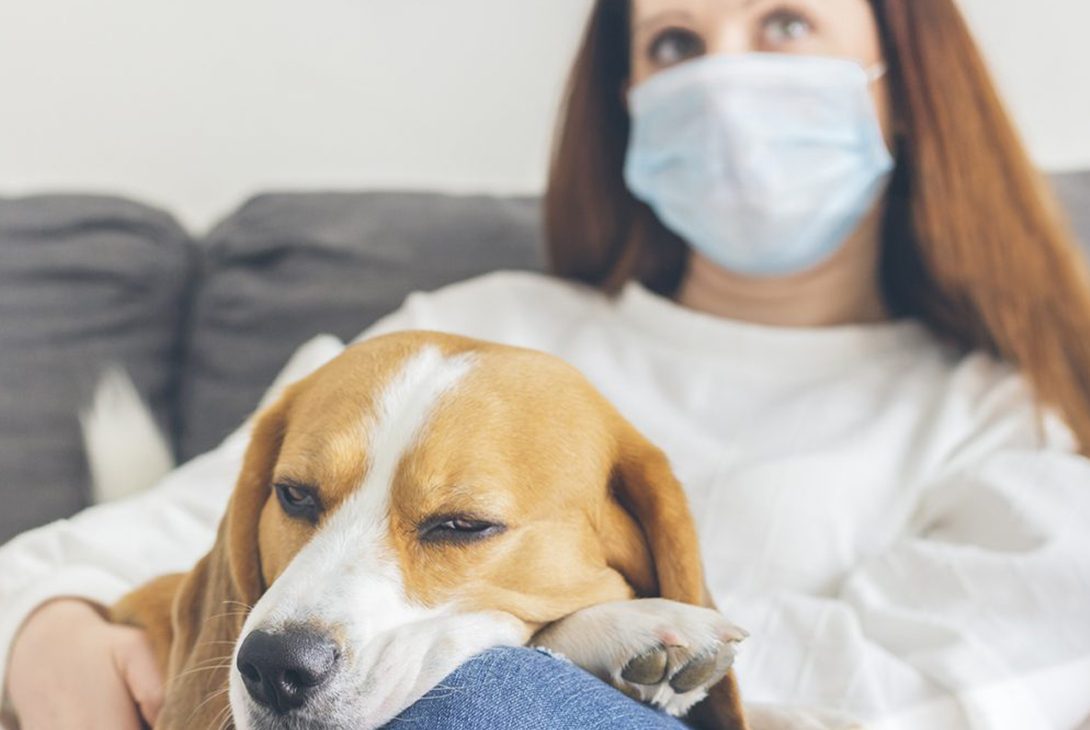
COVID-19 and Our Pets
As concerns begin to mount in our communities again regarding COVID-19, what about our pets? As a veterinarian, I get asked each day some of the following questions. So I hope to help alleviate readers fears surrounding COVID-19 and our domestic animals. However, as we all know this is a rapidly changing situation and by all means, the following answers are not set in stone as this current pandemic is continuously emerging. Please ask your veterinarian in your area for advice if you or your pet are feeling unwell or have any further questions.

Can I get COVID-19 from my pet?
NO! According to the WHO there is no evidence of transmission of COVID-19 from domestic pets to humans. There have been a handful of cases worldwide where COVID-19 has been present in the respiratory systems of dogs and cats and it is thought they acquired it from their COVID-19 positive owners. This may be a case of human to animal transmission, not the other way around. As it stands there is no evidence that our pets are a source of infection to other animals or to us.

What is Coronavirus then?
Coronaviruses are a group of viruses that infect birds and mammals, including humans. They are often associated with the common cold, bronchitis and pneumonia, and can also affect the gut. The virus that causes COVID-19 is also a coronavirus and likely originated from a wildlife reservoir. Canine coronavirus, which can cause diarrhoea, and feline coronavirus, which can cause feline infectious peritonitis (FIP), have been seen by veterinarians for many years. They do not cause infections in humans. These coronaviruses are not associated with the current COVID-19 pandemic. (Source: Australian Veterinary Association)
What if I am sick and my pet is at home with me?
Practice good hygiene always. Avoid close contact with your mouth, wash your hands thoroughly and regularly before and after contact with your pet and their food and water bowls. If you are COVID-19 positive and in quarantine with your pet then adhere to these hygiene guidelines. Do not break quarantine to take your pet to the vet, instead CALL your vet and they will advise you on the best protocol to safely provide the care your pet needs whilst protecting themselves and their staff from COVID-19.

My dog or cat is sneezing, coughing and has nasal discharge, should I be worried?
There are numerous diseases, including viruses, that can cause these symptoms in our pets. Usually, infectious diseases are species-specific, meaning they only can infect that particular species. Your vet will be able to examine, run tests and help to diagnose why your pet may be exhibiting these types of signs. Diseases such as infectious canine tracheobronchitis (kennel cough), whose name comes from the highly contagious disease occurring anywhere groups of dogs of all ages and susceptibility congregate e.g in a kennel and feline cat flu are common diseases that occur but there is no spread to humans.

What happens at the vet clinic now with COVID-19 prevention protocols in place?
Heading to the vet will be a little different from now. Each clinic has their own plan of prevention and social distancing measures in place. There will be fewer people allowed to enter the reception area, masks may be worn, your pet may be examined away from you, there may be phone consultations and longer wait times. The biggest change you may notice is that your pet is taken into the hospital for his examination- this ensures that social discerning can occur while your pet receives the care he needs. Sometimes daunting, having your fur baby away from you, it is in the best interest of your pet and yourself.
Final thoughts… As we all have our own battles during this strange time in the world, now more than ever is a reminder to live in the present, as our pets do.
Dr. Andy